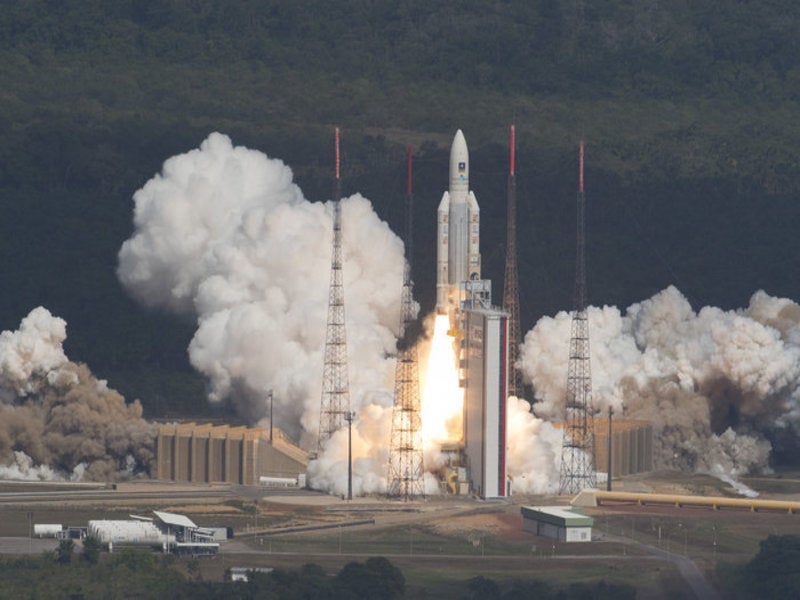

An Arianespace-operated Ariane 5 rocket has launched four more satellites under the European Space Agency’s (ESA) Galileo civil global satellite navigation system.
Launched from Europe’s spaceport in French Guiana, the satellites have extended Europe’s ability in satellite-based navigation.
Around 3h 35min after lift-off, the first pair was released, and the second pair separated 20min later.
Over the next few days, engineers on-ground will manoeuvre the satellites to reach their final orbits, with plans to make them join the constellation in around six months of time.
A total of 14 satellites under the Galileo programme were initially launched using the Soyuz Fregat rocket.
ESA Galileo programme and navigation-related activities director Paul Verhoef said: “Now that we can rely on the powerful Ariane 5, we can anticipate the quicker completion of Galileo deployment, permitting the system to enter full operation.”
How well do you really know your competitors?
Access the most comprehensive Company Profiles on the market, powered by GlobalData. Save hours of research. Gain competitive edge.

Thank you!
Your download email will arrive shortly
Not ready to buy yet? Download a free sample
We are confident about the unique quality of our Company Profiles. However, we want you to make the most beneficial decision for your business, so we offer a free sample that you can download by submitting the below form
By GlobalDataCo-funded by ESA and the European Commission (EC), the Galileo programme is expected to begin its initial services by the end of this year.
Two more Ariane 5 missions of the programme are also planned to be launched over the next two years.
Galileo’s full system of 24 satellites and other spare satellites are expected to be in place by 2020.
Once operational, Galileo will enable global operations to know their precise position in time and space.
European Global Navigation Satellite System Agency (GSA) is responsible for the uptake and security of Galileo, and will operate the programme from next year.
Image: Europe’s next four Galileo satellites lifted off from Europe’s Spaceport in French Guiana atop an Ariane 5 launcher. Photo: courtesy of ESA-S Corvaja.


